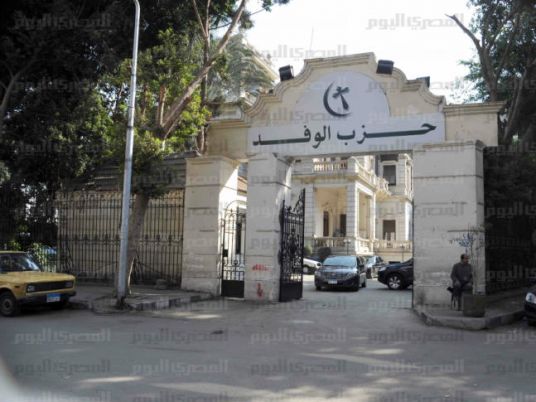
In recent days, the Wafd Party has been under great pressure to change its position at the last minute to push forward a candidate for the presidential elections against President Abdel Fattah al-Sisi after the party already announced its support for him.
The Wafd, like the Tagammu Party, has supported the president in a rational way because they issued statements confirming their demands for political reforms, allowing parties arrange events at their headquarters, and open up public discussion about freedoms and human rights. Therefore, it was no longer thinkable or acceptable that the Wafd would change its position and make an announcement to enter a nominal competition against the president. The party should keep its dignity and respect for itself, especially as the announcement to participate in the election was not seen as convincing for anyone at home or abroad. It merely gave the world press a fresh reason to mock and ridicule someone who supports the president, while at the same time running against him in political elections.
The solution was not to provide a candidate supporting the president, but rather to have a public debate about the mistakes of the president’s first term in office, and highlight the different priorities for a large part of the public and political elites against the priorities of the president. This is a needed public debate, but it has unfortunately been absent so far.
The state does not see what is happening on the ground and does not recognize that the presidential election is a stumbling stop. It needs to decide the form it wants for our political system; whether it will be a one-party system with referendums, or a restricted pluralistic system that allows a some amount of diversity in preparation for a transition to democracy and building the rule of law.
Therefore, the decision of the Supreme Body of the Wafd Party to refuse to nominate a candidate against President Sisi after the party declared its support to him was the right decision. It gave the party a relative advantage that it can benefit from in order to develop the country’s political life. It will give it credibility and demonstrate that it is a party that is not run from the outside, but rather is governed by internal rules and regulations.
The power of the Wafd lies in the fact that it is supportive of the state when it is exposed to existential dangers such as terrorism, while also having the ability to differ with it and the political system. It must more vigorously defend the rule of law, and apply its immortal motto “what is right is above the power and the nation is above the government.”
The strength of the Wafd also lies in the fact that it is capable of being a balancing force in a period during which the country suffers from deep polarization. It is capable of playing a bigger role in the next stage if it can build a genuine party institution, and hold the party’s elections to its Supreme Body on time, and be an example for the community to show that it respects its rules and internal regulations. It could thus gain greater credibility when demanding that the state respect the constitution.
The decision of the Supreme Body of the Wafd not to push forward a candidate in the presidential elections deserves salute and praise, and gives hope that there is still a margin of “independence” for the civil parties, upon which it can build more legitimacy and influence.




